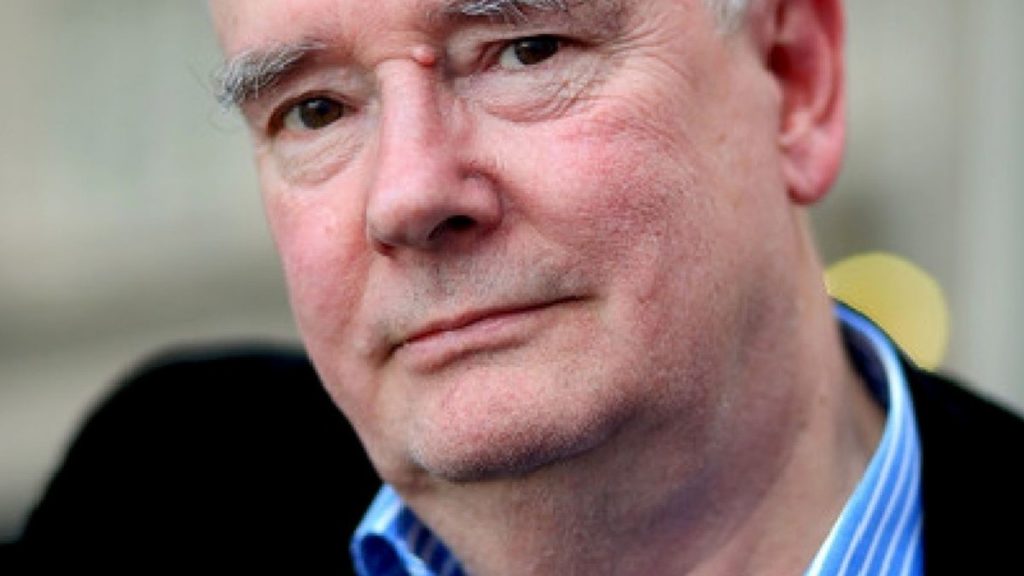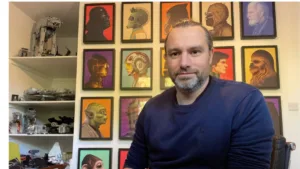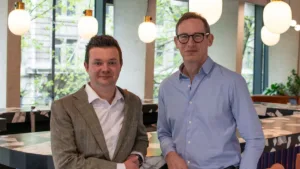Patrick Collister, NDA’s monthly creative columnist, is the Curator of The Caples Awards, Editor of Directory and a friend to Ad-Lib.io.
In social media, I’ve just come across some bozo who has written, “To know how to succeed, you must first know how to fail.”
This is such utter bolloc*s.
Here’s some more of the same hogwash.
“The secret of life is to fall seven times and to get up eight times.” Paulo Coelho
“It is impossible to live without failing at something unless you live so cautiously that you might as well not have lived at all, in which case you have failed by default.” J.K. Rowling
“When you take risks, you learn that there will be times when you succeed, and there will be times when you fail, and both are equally important.” Ellen DeGeneres
“Failure is another steppingstone to greatness.” Oprah Winfrey
“I can accept failure. Everyone fails at something. But I can’t accept not trying.” Michael Jordan
“If you’re gonna fail, fail fast.” Larry Page.
Every one of those quotes comes from someone ludicrously successful.
Paul Coelho, number seven in the list of the world’s richest authors.
J.K.Rowling, worth a billion dollars.
Oprah Winfrey, three billion.
Larry Page, Croesus.
Talking about failure is the self-congratulation of those who’ve made it.
Seriously, though, we have some weird ideas about what it is to crash and burn.
This is partly to do with the fact we seem to live in a world in which failure is not merely celebrated, it’s rewarded.
The CEO of a bank makes a “serious error of judgement” and is given £2.4 million for resigning.
A trusted TV presenter exchanges sexually explicit pictures with a teenager and is suspended on full pay of £35,000 a month.
Liz Truss costs the UK economy £30 billion and gets £18,660 in severance.
So, what do the people who really have fu*ked up bigtime have to say for themselves?
“Sorry.” John De Lorean.
“Oops”. Elizabeth Holmes.
“Oh dear.” Sam Bankman-Fried.
What these staggeringly blinkered individuals all seem to share is a disinclination to accept responsibility for their actions.
Let’s stick with Holmes for a moment.
I did some work with a start-up. (Bear with me here.)
I was trying to help them establish a brand identity. One of their brand characteristics, I noted, was dishonesty.
Oli, the CEO, didn’t like this.
“It’s true,” I said. “You go into new business meetings and you tell clients you can do things you know you can’t. You lie.”
“That’s how the tech revolution works,” he protested. “You over-promise because then you go away and you have to make it happen. Or else.”
Aha! Fear as the engine of success.
I can see that.
But what Elizabeth Holmes did was over-over-promise and then find she was unable to get the tech to catch up with her commitments.
So her white lies became lie-lies.
And that was when she began to fail as a human being. .
When you can’t imagine the consequences of your decisions on the lives of others, or you don’t care, then failure is catastrophic.
Elizabeth Holmes cost those who trusted her $450 million.
And while it’s hard to feel much sympathy for Rupert Murdoch, who put $125 million into Theranos, what about the nine million small investors who have collectively lost $5 billion in the collapse of FTX?
You can say they were idiots. Crypto was/is clearly a bubble and anyone buying the hype is lying to themselves.
Yet Sam Bankman-Fried was the subject this week of a BBC documentary. And an FT film.
‘Bad Blood’, the book of the Elizabeth Holmes story, sold a million copies and the TV miniseries ‘The Dropout’, “an unbelievable tale of ambition and fame gone terribly wrong”, has won awards.
There are three movie-length documentaries about de Lorean and ‘Driven’, 2018, is a film about his rise and fall.
Fu*k ups are celebs.
And this is an insult to every dreamer who had an idea, who set out with high hopes only to end up ground down.
What about their quotes?
“Knowing my luck, the day my ship comes in I’ll be at the airport.” Anon.
I saw that written on a lavatory wall and recognised the pain.
In the last 20 years I’ve started three companies and each has, at a different time, had the potential to scale. But didn’t.
Maybe I bottled it. I didn’t want to bet the house. Covid didn’t help.
It doesn’t matter what the reasons, or the excuses, but those companies failed.
Each time I picked myself up and started all over again because I had to.
Responsibilities, you see. Wife, family, investors.
Nothing like fear for sharpening the mind.
Consequently, I have never seen failure as a necessary step on the ladder to high achievement as Coelho, Rowling, Winfrey and others seem to believe.
Failure sucks.
It puts you back to the bottom rung again.
It can get you questioning everything you once believed so passionately that you started a business because of it.
Your self-esteem and your self-identity can take a hammering.
Suicide rates in the UK and the USA leapt up in the financial crash of 2008 and the cost-of-living crisis right now is reported to have led to a 196% rise in suicidal thoughts among small business owners.
Companies closing down now outnumber start-ups thanks to rising interest rates, extortionate energy costs and inflation.
And yet.
And yet…it’s in times like these that creative people come through.
They have ideas.
They pivot.
There have been some amazing stories about pivoting.
Nintendo once made playing cards.
Netflix went from DVDs to streaming.
A personal favourite is how Nokia moved out of rubber boots, into electricity cabling, then on to mobile phones. Today they make and sell medical equipment.
In all those companies, someone realised they needed a new idea. Or else, as Oli said.
Then that person persuaded their colleagues it was a good idea and that together they could pull of the impossible. And they did.
Fear of failure is what motivated Reed Hastings, CEO of Netflix, and Rajeev Suri, CEO at Nokia.
You don’t get them saying crap like, “Failure is fab” because they know how darned close they came to it.
On a smaller scale and closer to home, there are literally hundreds of companies pivoting frantically right now as a result of GenAI.
Some of them will emerge as unicorns.
You can bet your bottom dollar that not a single one of them has written on a wall the motivating slogan “Failure is nothing to be afraid of.”
That’s because anyone who’s ever run a business knows it is everything to be afraid of.
In fact, it’s the best thing about it.
It’s fear that keeps creative people looking for solutions to our many problems and every now and then they succeed.









